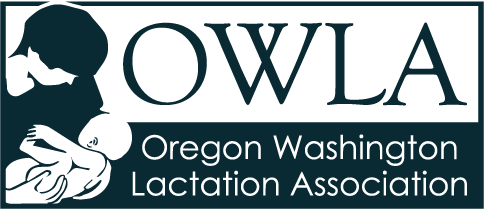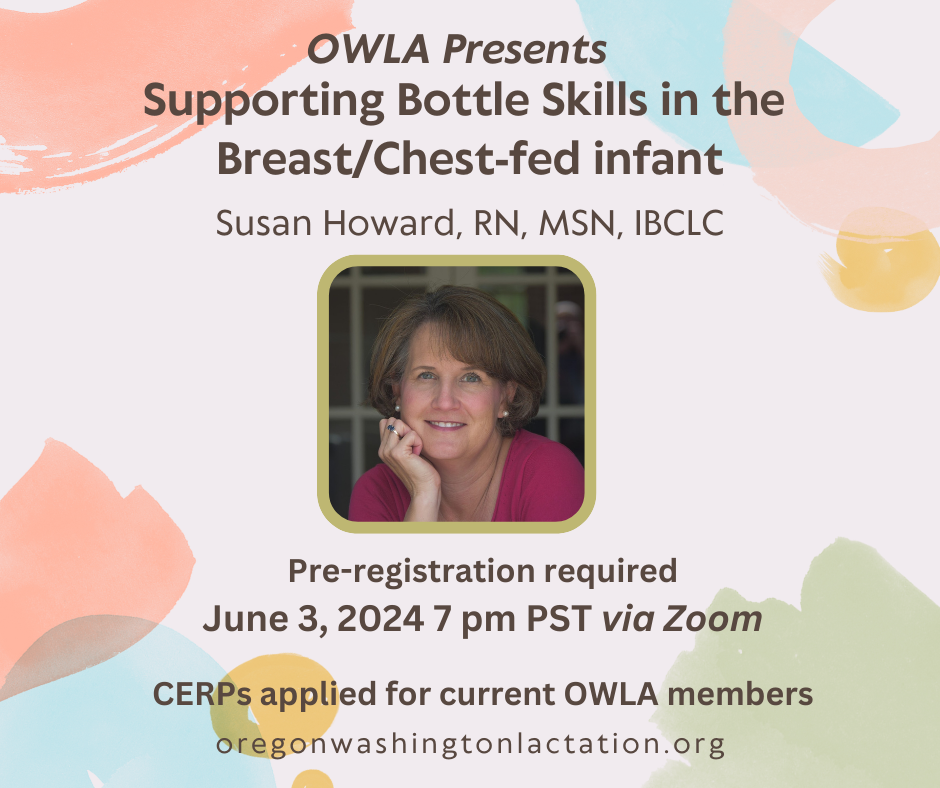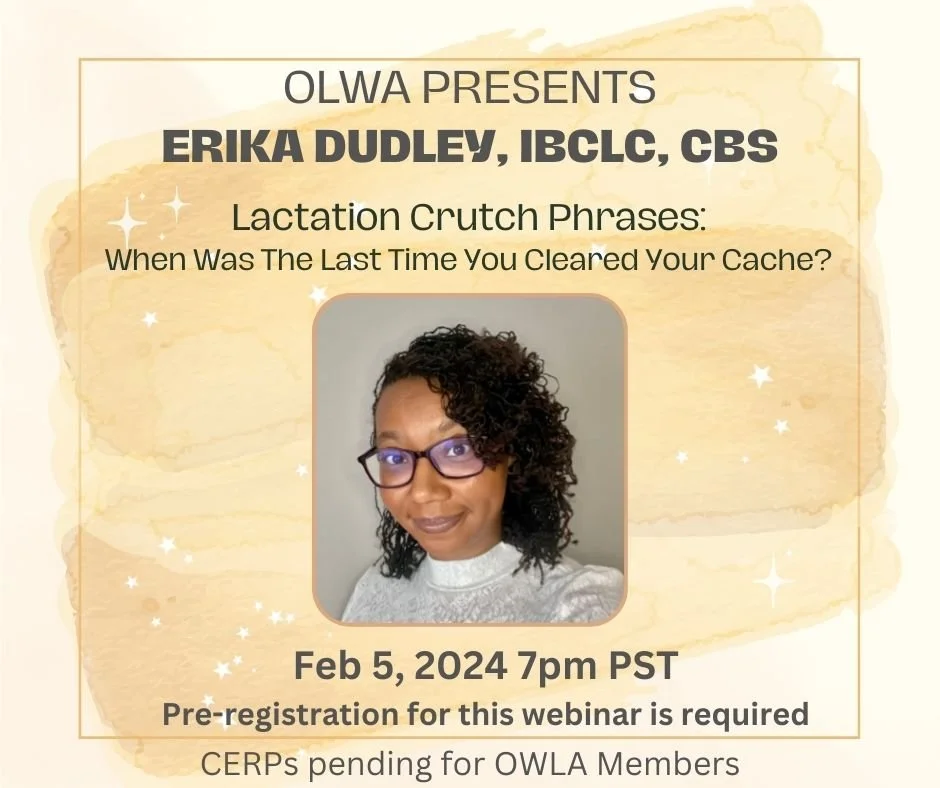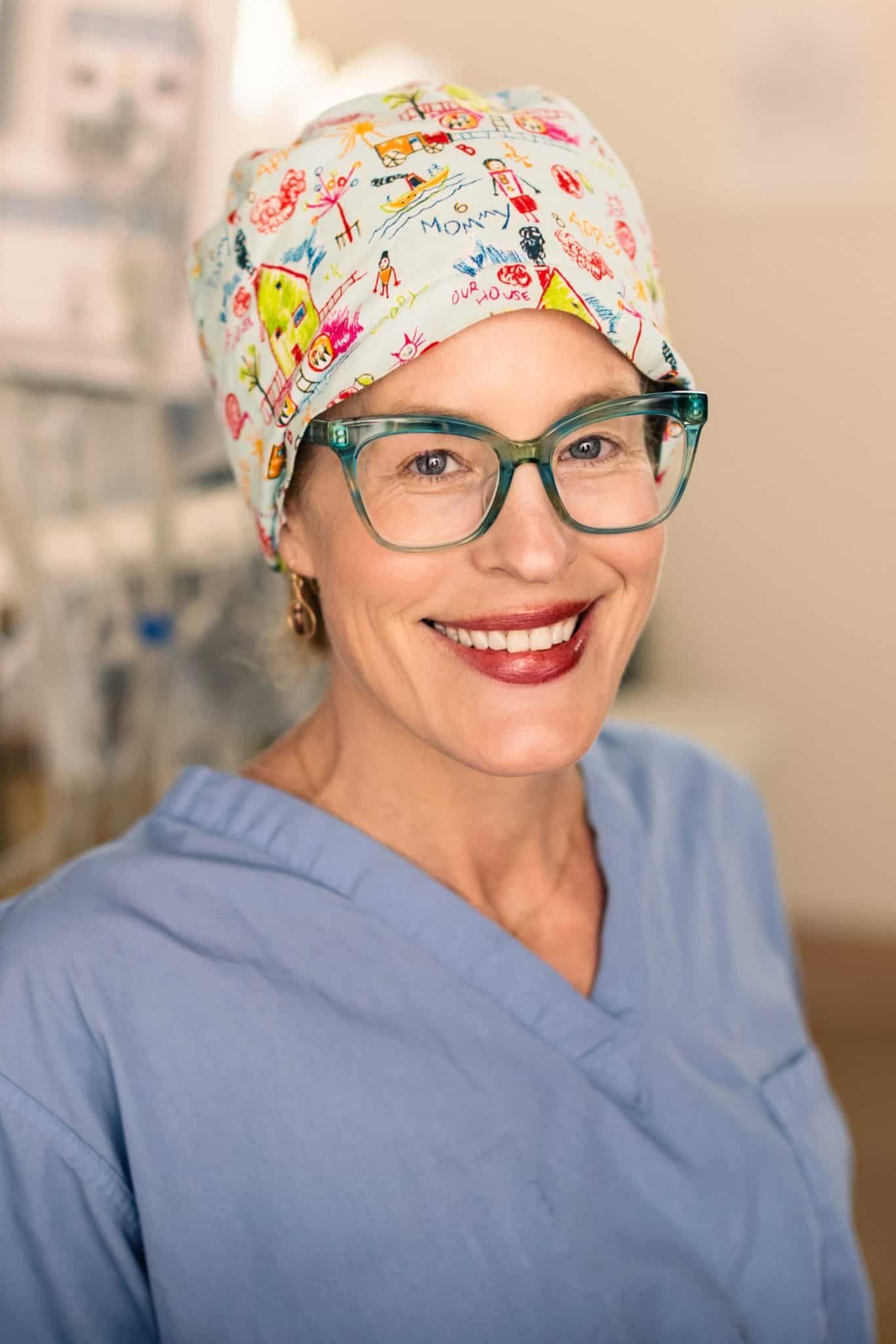Join us on Monday, April 4th for a special presentation featuring a multidisciplinary panel of professionals that aim to improve infant feeding outcomes by using alternative therapies. We'll learn about how their specialties may impact infants who are experiencing feeding challenges, what therapies may be appropriate for what families, and so much more!
Please join us EARLY at 6:40pm PST for a special networking opportunity.
You can pre-register for this free event HERE. After registering, you will receive a confirmation email containing the zoom link for the meeting.
Our Speakers:
-Carol Gray, LMT, CST, RPYT is the founder and director of The Carol Gray Center for CST Studies® in Portland, OR. She brings us decades of midwifery, doula, yoga, and bodywork experience. In this discussion, Carol will explain how Craniosacral Therapy complements all babies on their feeding journeys!
-Dr. Korin Rasmussen, DC is a Chiropractor in Portland, OR who will speak to the impact that she has observed bodywork and tummy time to have on infants experiencing torticollis, reflux, colic, tongue-tie, as well as babies that are pre/post frenotomy.
-Sejal Fichadia, IBCLC is an educator of infant massage and is the owner of Kindred Mother Care, LLC where she provides lactation consultations and TummyTime!™ services. Sejal is passionate about all things infant movement and believes that a better understanding of infant reflexes helps professionals to improve sucking, swallowing, and breathing during feeding.
-Leisha Vogl, SLP has a passion for helping families experiencing pediatric feeding and swallowing disorders. She was the first Certified Orofacial Myologist in the State of Oregon and helped to establish the Marion County Feeding Coalition consisting of lactation consultants, SLPs, OTs, midwives, and parent representatives to establish improved feeding care. She believes in the value of interdisciplinary approaches, including that of babies!
Our Objectives:
-Learn how complimentary therapies may help to impact infant feeding experiences
-Discover which complimentary therapies may help different dyads
-Gain confidence in your bodywork referrals
-Meet and connect with local professionals who are equally as passionate about improving infant health outcomes
We look forward to seeing you all again! Please message us or email us at info@oregonwashingtonlactation.org with any questions or concerns













































